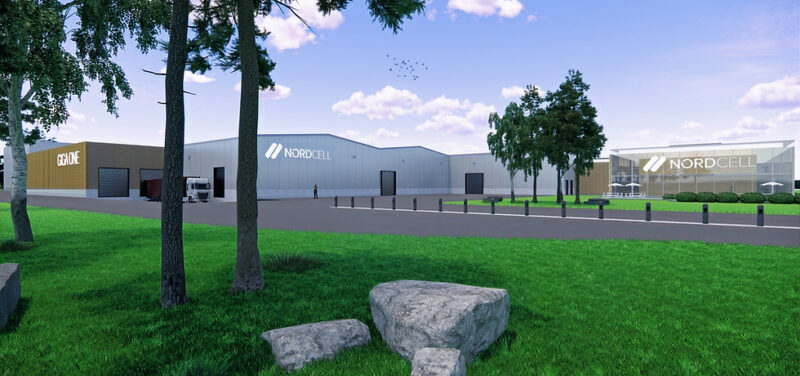Nordcell Group AB announces its plans to build the world’s greenest solar panel factory in Sweden.
PVTIME – Nordcell is set to build the world’s greenest solar panel factory, GIGA ONE. The facility will be powered by 100% fossil-free energy and boast a massive annual production capacity of 1.2 gigawatts (GW), translating to 2.5 million solar panels. Once installed, the annual production is expected to generate clean energy equivalent to power 600,000 homes, while simultaneously boosting the current European domestic solar panel production capacity by +50%.

The world is facing a critical moment. Climate change demands a swift transition away from fossil fuels and towards a renewable energy future. Solar power is considered a cornerstone of this transition, offering several advantages due to its swift development and affordability, making solar the fastest-growing energy source in the world.
PV production is a highly energy-intensive industry, and today almost all solar panels are produced in China using a heavy mix of coal-based energy. Nordcell is strongly committed to circular production and is on a bold mission to become the greenest PV producer in the world. By leveraging the green energy mix in Sweden, Nordcell targets to reduce the carbon footprint by 90% by 2030.
– We’ve partnered with Nordcell from the start, initiating an early Life Cycle Assessment (LCA) to analyse the environmental impact of production. It became evident that Sweden holds significant advantages globally in reducing the carbon footprint in PV production, says Dr. Jochen Rentsch, Head of Technology Transfer Division Photovoltaics, Fraunhofer ISE
– With access to cheap fossil-free energy in Sweden, it’s our responsibility to leverage it for energy-intensive industries, particularly into products driving the clean energy transition, says Felix Olofsson, Co-founder at Nordcell.
Today, more than 97% of all solar panels installed in the EU are imported and sourced from China and South Asia making the European Union completely dependent on Asian imports for the foreseeable future. The EU has announced a target that at least 40% of all net-zero technologies, including solar panels, should be manufactured within the EU to serve the local market by 2030. Given the current pace, the European solar manufacturing industry is highly unlikely to reach that target.
-The EU is estimated to install around 1 billion solar panels by 2030. Unless something changes, 97% of them will be non-European panels, says Vahid Toosi, Co-founder at Nordcell
Nordcell recognizes the challenges within the industry and has during the last year created a solid plan that enables Nordcell to produce high-quality Solar Panels at a competitive cost with minimal CO2 footprint. Inspired by the production efficiency of the semiconductor industry, Nordcell is building the world’s most advanced solar panel factory that emphasises scale, AI-driven automation, and state-of-the-art quality.
– Nordcell is fundamentally rethinking the standard production blueprint and deploying next level automation combined with the globally most advanced production equipment. By this Nordcell will be able to produce best in class solar panels at a competitive cost, says Dr Peter Fath, Board member The European Solar Manufacturing Council (ESMC) and spokesman of the German Solar Machine Makers at VDMA
Nordcell’s mission is building a vertically integrated production that covers all four primary stages of solar panel production; Silicon, Ingot & Wafer, Cells, and Panels. The first factory – GIGA ONE – with a production capacity of over 2.5 million panels annually will, once installed, produce about 1,5 TWh, equivalent to roughly 1% of Sweden’s total energy needs.
– The green transition is the biggest challenge of our generation, and big challenges need big solutions, says Hamid Toosi, Co-founder at Nordcell
Nordcell is currently evaluating different sites in the northern region of Sweden, and a site decision is planned to be made shortly. The plan is to start production in the first half of 2025.

Scan the QR code to follow PVTIME official account on Wechat for latest news on PV+ES











